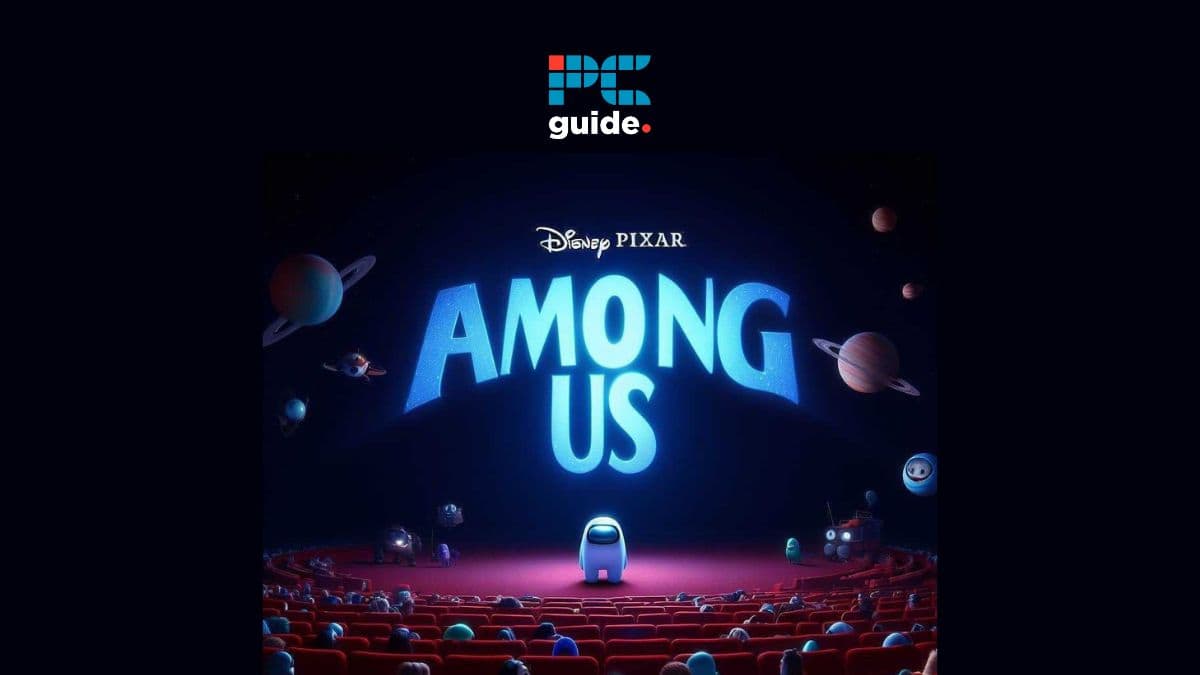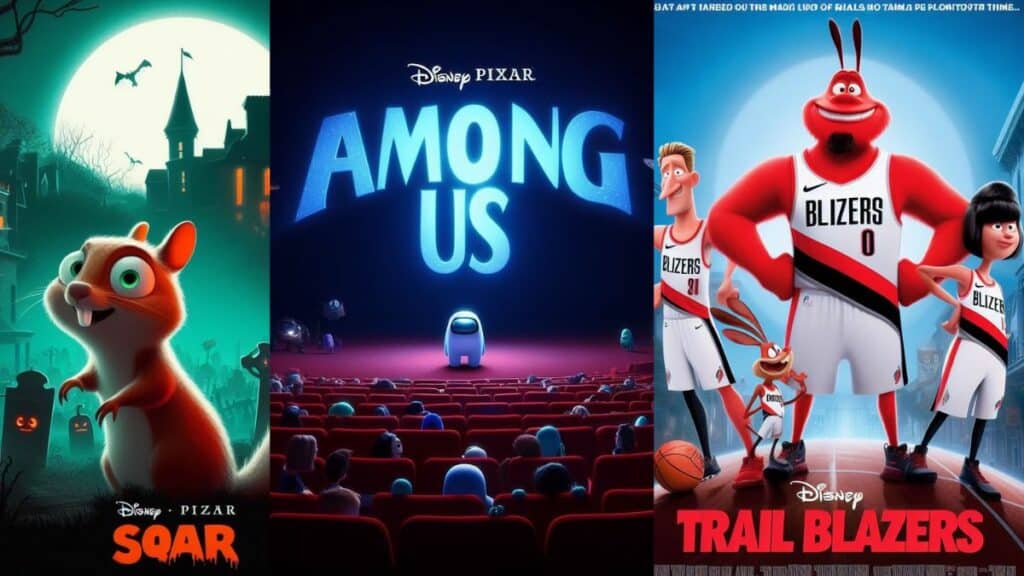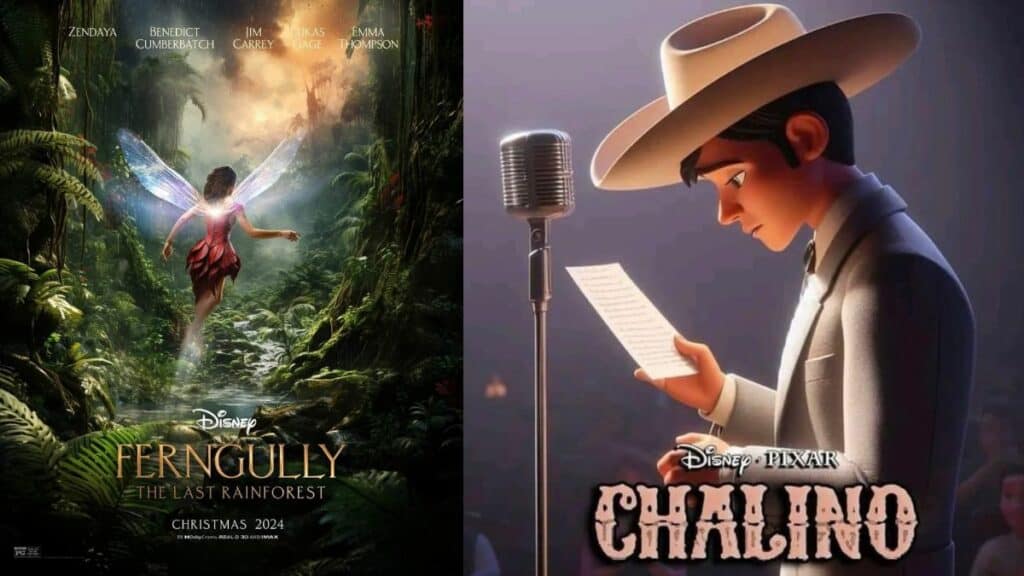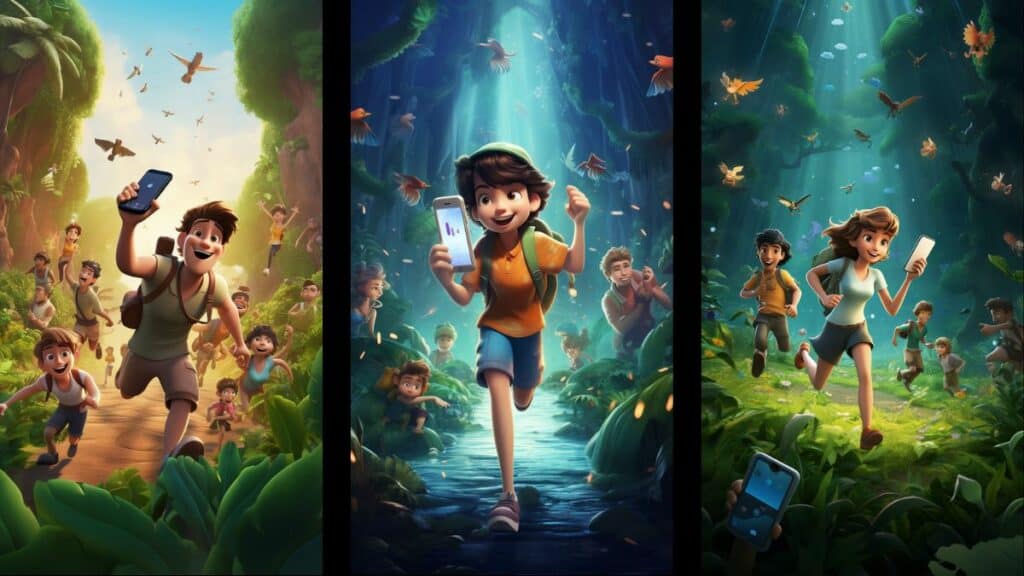AI Disney movie posters – DALL-E generates Pixar-inspired images

Table of Contents
The hot AI content trend of late September through October — AI Disney movie posters. User-generated (and therefore fake) posters have been popping up online replicating Pixar’s style, produced using AI tools such as DALL-E 3 (Stylized DALL·E 3), Bing Image Creator, Stable Diffusion, and Midjourney. The AI Pixar posters Unfortunately for Disney’s Pixar, what started as a wholesome trend has ended in intentionally poor taste, at best tactlessly depicting sensitive subjects for shock value.
The Disney Pixar AI movie poster trend
We’ve found a small handful of non-offensive examples of the trend, which is exemplary of the state of it. Shared on October 13th by Twitter user @Trippayy, the image depicts what a movie poster might look like, if Pixar were to create a movie about multi-player videogame Among Us.
Prime Day is finally here! Find all the biggest tech and PC deals below.
- Sapphire 11348-03-20G Pulse AMD Radeon™ RX 9070 XT Was $779 Now $739
- AMD Ryzen 7 7800X3D 8-Core, 16-Thread Desktop Processor Was $449 Now $341
- ASUS RTX™ 5060 OC Edition Graphics Card Was $379 Now $339
- LG 77-Inch Class OLED evo AI 4K C5 Series Smart TV Was $3,696 Now $2,796
- Intel® Core™ i7-14700K New Gaming Desktop Was $320.99 Now $274
- Lexar 2TB NM1090 w/HeatSink SSD PCIe Gen5x4 NVMe M.2 Was $281.97 Now $214.98
- Apple Watch Series 10 GPS + Cellular 42mm case Smartwatch Was $499.99 Now $379.99
- ASUS ROG Strix G16 (2025) 16" FHD, RTX 5060 gaming laptop Was $1,499.99 Now $1,274.99
- Apple iPad mini (A17 Pro): Apple Intelligence Was $499.99 Now $379.99
*Prices and savings subject to change. Click through to get the current prices.

The trend appears to have started in good faith, with initially wholesome concepts swiftly co-opted and outnumbered by those with a darker sense of humor. As a result, almost all other examples of the trend are designed to cause offence. Light-hearted exceptions include that of the NBA basketball team Portland Trailblazers shared by Twitter user Blazer Enthusiast, and “Night of the Living Squirrels” by Meat Popcicle.
Late entrants to the trend included that of a poster for the fictional live-action Ferngully movie starring Zendaya, as well as animated feature ‘Chalino’, named after famed 20th-century Mexican musician Chalino Sánchez. Sadly, again, neither is real.

They do, however, present a warning for companies of the same ilk. AI today can be used for online attacks and defamation, and little to no security solution on earth can protect against the virality of a trend that spreads across the internet via multiple social media platforms. The use of DALL-E or the Bing Chat system etc. to create your own Pixar-style poster is so easy and low-cost that AI truly is in the hands of the public — and now we’re beginning the see the ramifications.
Essential AI Tools
How to make your own Disney Pixar inspired movie posters with AI
You can generate your own AI move poster using any of the popular AI art generators, namely DALL-E 3, Bing Image Creator, Stable Diffusion, or Midjourney. All of these options are available from the comfort of your browser, although Bing Image Creator will of course favor the Microsoft Edge browser.
AI art generators tend have have similar, but not identical capabilities so you will find a favorite! For example, ChatGPT has a mobile app for iOS and Android, with which you can generate prompts by employing the use of GPT-4 and then generate images using DALL·E 3. Both DALL·E 3 and Midjourney are excellent at recreating the unmistakable pixar design, but the former allows you to make modifications to your existing generated images.
Of course, there are tell-tale signs that a poster is AI-generated. Bing Image Creator has shown impressive results for text-in-image generation, but this subset of generative AI is still not entirely solved. Common and visually consistent words, such as the Disney and Pixar logotype, appear in their recognizable form — albeit with messier lines than in an official promotion, and occasionally written as “Pizar”.
Step
AI image generator
Choose your AI image generator, and open it up. The most popular options include DALL-E 3, Bing Image Creator, Stable Diffusion, and Midjourney.
The one people are typically using for this trend is Bing Image Creator, because you can use it for free.
Bing Image Creator is “powered by DALL·E 3”, meaning their quality of results will be identical.
Step
Prompt
Write your text prompt, and go for something that won’t abuse the terms of service. Here’s an example: “Disney Pixar movie poster about Alan Turing”.
This is the process many users overcomplicate, by calling it “Prompt engineering”.
Step
Trial & Error
It seems that Bing Image Creator may have already blocked the phrase “Disney Pixar movie poster” and anything that would generate the same kind of result. You may need to try a different prompt, or a different AI image generator.
In our own testing, the DALL·E 3 model has unfortunately proven completely useless, failing to generate anything similar after 6 attempts. By comparison, here are our results for the prompt Influencer Island movie poster, social media stars with smartphones running through a jungle, Disney Pixar movie style –ar 9:16″, as generated by Midjourney. Admittedly, this AI art generator has its own drawback — no movie title text. Even if it were to add text, Midjourney is not up to par with text-in-image generation quality.

What’s the best Disney AI Poster generator?
The most popular apps (or websites) people are using to generate these images are Midjourney, Stable Diffusion, Bing Image Creator, and ChatGPT. Countless startups will do a similar job, but likely with a lower standard of quality, and with fewer parameters to steer your generation in the desired direction.
Each of these three options has pros and cons. Midjourney has the highest aesthetic quality and has many parameters that allow for objective and reliable control over image generation, but it cannot be used for free. Stable Diffusion produces reasonable quality with its latest models, such as SDXL Turbo, and it’s open-source, which provides the highest possible level of control for those who know Python. This also makes it inaccessible for most users, and it doesn’t even come with a standardized GUI (the most popular third-party GUI is this one, by GitHub contributor AUTOMTIC1111).
Bing Image Creator has great quality and can be used for free, but with less control than Midjourney. ChatGPT 4 (with DALL-E) has the same quality, and is the best prompt generation platform, with the greatest selection of plugins, but cannot generate images for free. This is because using ChatGPT 4 requires a paid subscription to ChatGPT Plus, as opposed to ChatGPT 3.5 which is free and has no image generator.
The last two are based on the same AI image generation model, DALL-E 3 (Stylized DALL·E 3). This AI image model, developed by OpenAI, is currently the best AI art generator for text-in-image, as it can produce recognizable text and clearly defined typefaces. However, it is subject to some artificating, such as duplicate letters and incorrect letters.
Steve’s opinion
The swift and unstoppable nature of the trend has highlighted the dangers of AI image generators. However, the swiftness with which it devolved into offensive material really only highlights human nature. Generative AI is a tool which can be used for good or for evil. It can be built immorally too, by training it on artists’ work without consent.
As far as the usage is concerned though, it’s no different from the way that people have always used images on social media — for good, evil, and that very large grey area in between. What we’re seeing play out in real-time is a codification of morality. We’re seeing companies, bound by their capitalist priority to make money, and therefore a secondary priority to do what they think will ingratiate themselves with their target audience, decide what should and should not be censored. Are they incentivized properly to make that call? In Steve’s opinion, no, and to be fair, it’s no company’s job to attempt to solve one of the hardest philosophical problems in human history. What we’ll get is an approximation, erring on the side of caution to pacify companies like Disney’s Pixar, which will now understandably be suspicious at best of AI image generators.

